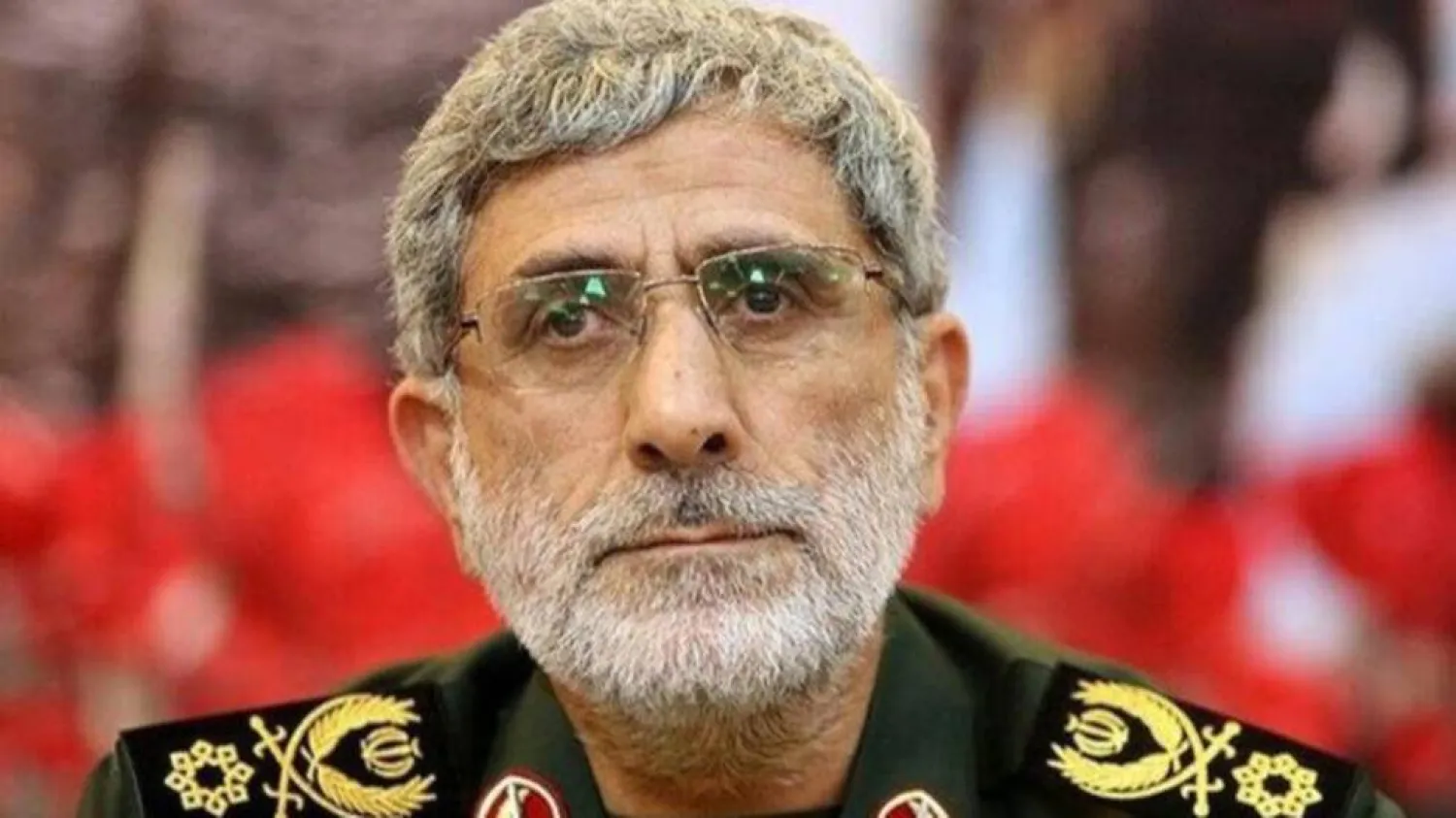The head of the Iranian Revolutionary Guards' Quds Force, Esmail Qaani, has visited Syria to oversee a joint military drill, media outlets in Iran said.
Qaani, appointed Quds Force commander after a US drone strike on Baghdad killed its revered leader Qasem Soleimani in 2020, met senior Syrian officials in Damascus, Tasnim news agency reported late Thursday.
They held discussions on ways to "confront the military and security challenges facing Syria" and supervised a joint Iran-Syria military exercise, Tasnim said.
Qaani also praised Syria and Iran's "brotherly relations" said Iran "will stand by the Syrian people and leadership in facing its challenges", the news agency added.
The Quds Force is the foreign operations arm of Iran's Revolutionary Guard Corps.
The United States placed it on its list of "foreign terrorist organizations" in 2019, but Iran insists its activities abroad are an example of regional cooperation aimed at shoring up stability and blocking Western interference.
Iran has been a major ally of Syrian President Bashar al-Assad, providing him economic, political, and military support during Syria's more than 12-year civil war.
Tehran's support helped Damascus claw back most of the territory it lost at the start of the conflict and positioned Iran in a leading role as Assad seeks to focus on reconstruction.
Militias affiliated with the Revolutionary Guards have a heavy presence across Syria, but Tehran denies sending forces to fight in Syria, saying it only has military advisers in the war-ravaged country.
The Syrian conflict has claimed more than 500,000 lives, displaced millions and ravaged the country's infrastructure and industry.
In May, Iran's President Ebrahim Raisi embarked on a landmark visit to Syria, where he called on "resistance forces" to come together to confront Tehran's arch-enemy Israel.
Since the start of the Syrian war in 2011, Israel has carried out hundreds of air strikes against Syrian positions as well as Iranian and Lebanese Hezbollah forces, allies of Damascus and arch-foes of Israel.
Israel rarely comments on the strikes on a case-by-case basis, but says it seeks to prevent Iran from establishing a foothold on its doorstep.









